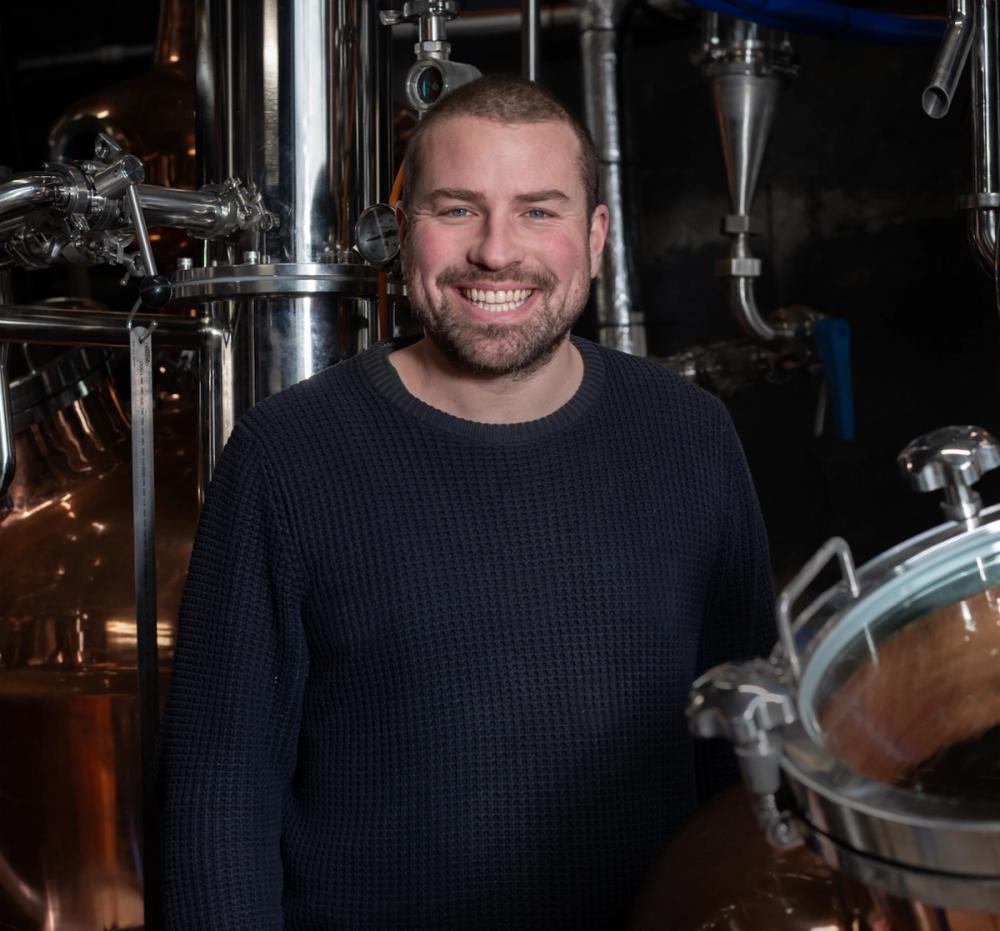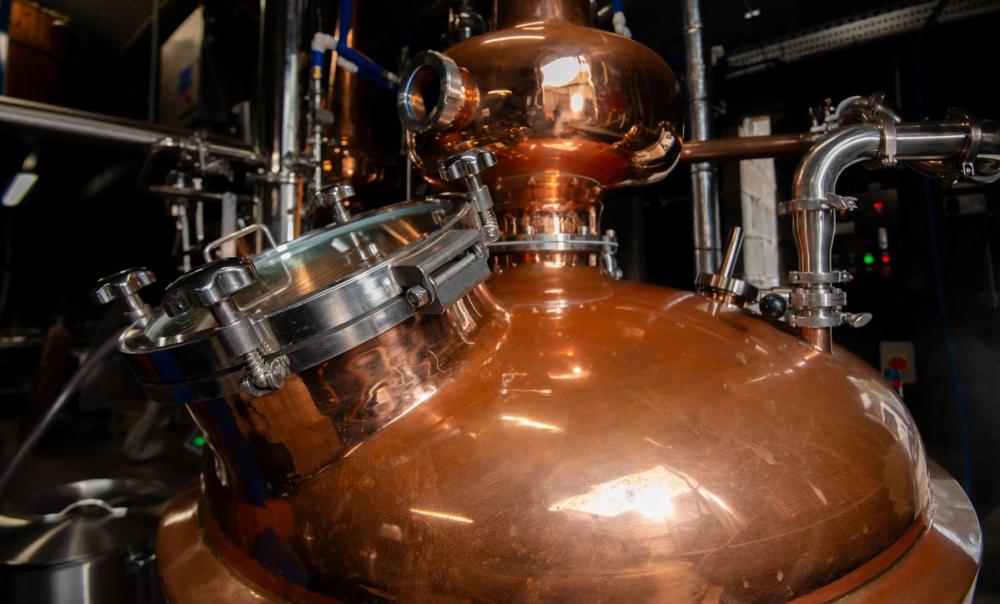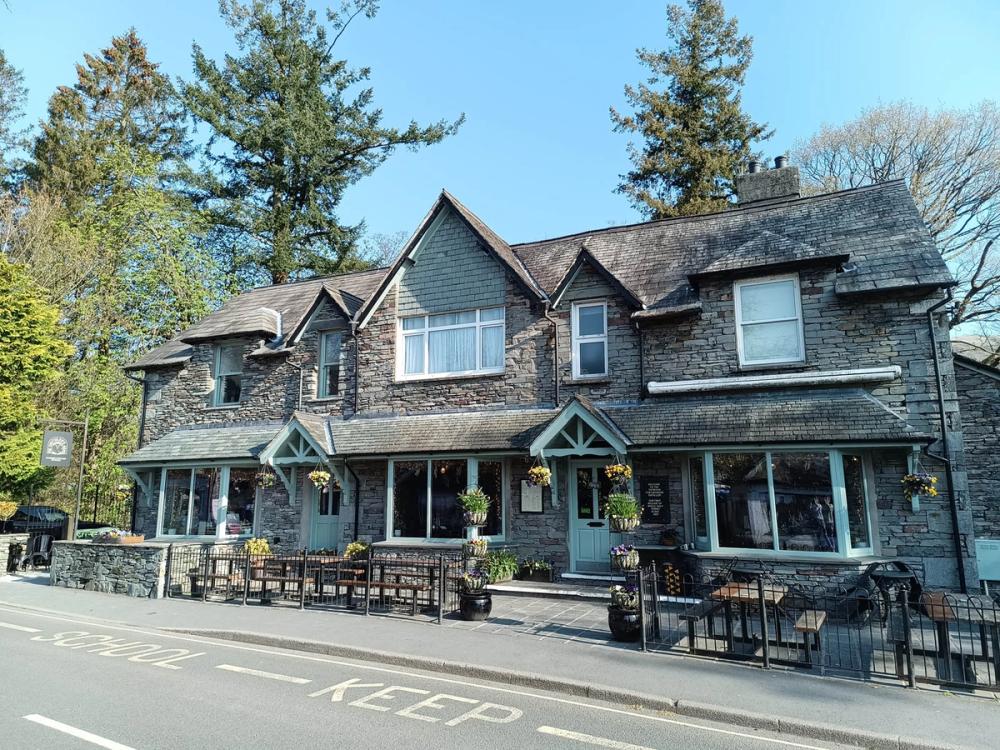Tell us about the decision to start your own distilling business on the back of the successful brewing company - why did you do it, and why was it the right time to do it?
I am a brewer by trade (10 years professionally). The founding purpose of Grasmere Distillery is to explore the rich landscape of flavours from malted barley in whisky: how the mash, fermentation, and grain can improve the spirit, before it ever touches the cask. From the beginning, I always thought of whisky as "distilled beer": a way of taking a perishable ale and transforming it into something eternal. Something that will live longer than me.
This seemed obviously the point of whisky: a way of preserving beer, in the same way that cider started out as a means to preserve the apple crop. I found myself thinking about whisky like this, almost on autopilot, and was then quite surprised at how little attention the brewing side of whisky gets in the wider industry. (Indeed, the forthcoming GI for English Single Malt does not even require a distillery to ferment the mash themselves... Sad. But a topic for another day.)

Paul Abbott wants to see English whisky distillers be braver and bolder and create a real identity for what English whisky means
On timing - there is never a good time to start a new enterprise. Certainly not in the middle of endless tax rises. But British consumers will always want to drink good spirits, and we are aiming to produce a very small quantity - just 1,000 bottles of single malt per year. I am happy with the risk.
What were you looking to do as your point of difference?
If you go to the festival circuit, the whisky world can feel quite predictable and boring. Most distilleries are following a standard boilerplate format. ("Here is our unique 12-year-old sherry cask whisky…”).
We need to be bolder and to try something genuinely new. So, at Grasmere Distillery, we are very focused on how the pot ale, the mash, the fermentation, and experimenting with all these things can improve the finished whisky. There will also be no age statement and no cask-based marketing.
Instead of maturing our whisky in specific casks, we will use a range of oak casks for the initial ageing, and then decant these into a larger solera system. From this solera, we will release an annual vintage in the way that a vineyard would. Our finished output will be just 1,000 bottles per year from 2027. One annual release and that's it.
What lessons have you been able to take from the brewing side over into distilling?
The basic lesson from brewing is about range and variety. Every type of barley, yeast, and even the fermentation temperature - all these variables impact the spirit hugely.
For example, Munich malt and especially dark Munich, which I love for whisky, is made with higher germination temperatures and then kilned dry. This extra heat triggers a Maillard reaction, caramelising, building melanoidins in the grain, if distilled and cut carefully, this presents in the new spirit as toffee, sweet bread, toast, molasses, treacle, biscuit, all the "breakfast whisky" flavour that most traditional enthusiasts will associate with "1st fill bourbon barrel".

Grasmere Distillery has used techniques and ideas from the brewing side of the business in the whiskies it is making
If you like Twix bars or crunchy nut cornflakes, you should try a whisky made with caramalt, Munich malt, Vienna malt, and golden best ale malt. The oak doesn't have to do very much, really, if a whisky has been made well in this way. There are other paths to sweetness in whisky, without sherry casks.
You follow a grain-to-glass philosophy and approach - can you explain what you mean by that and why it is so important to you?
It is a reaction against the status quo, where so much of the industry is fake. We need to minimise bullshit. Bullshit is bad for everyone, especially consumers.
For example, the awful trend of "spirit brands": businesses that take generic liquid, usually imported, and try to disguise this as something more authentically "craft" and "local". The spirits that are white-labelled in this way are usually terrible junk, full of headache-inducing acetone, and excessively sweet.
Almost every town in England now has a "gin brand", for example, which is pretending to be a small distillery, but really is just buying neutral grain spirit and flavouring it, and sometimes, not even bothering with that.
The same thing is happening to rum and whisky. It is sad. We urgently need real manufacturing in England, real people working with real machines. But what we have is an increasingly pretend industry. People with Instagram accounts and high mark-ups, and no clue about what they are doing.
So, the philosophy of grain-to-glass is about doing everything ourselves. Whatever you say about my spirits, I genuinely made every drop, from the beginning, in the old-fashioned way. This doesn't automatically mean that our spirits will make you happy. But they are real, at least.
You are also making gins and vodkas and whiskies - why did you start with gins and vodkas first?
We needed the money. White spirits are quick. Also, our dry gin is very drinkable.
What style of whisky are you looking to make?

Grasmere Distillery has big ambitions for English whisky
Lightly peated whisky from a black sour mash (sour = acidic), aged in charred and toasted oak, which has previously held a fruit alcohol (cider, for example, works well for us). I want rich complexity. A whisky that holds your attention. For this, we need a balance between sweetness and bitter phenols from the grain, with fruit and tannin from the cask. Also, enough lignin for the cask to transform the spirit, which is why we normally choose heavily toasted & charred American oak.
Lignin is a natural polymer from the wood that breaks down into other compounds that improve the whisky - vanillin, guaiacol, eugenol, for example, which infuse a sweet & spicy aroma to the spirit. We are aiming for a sipping whisky, with a long finish: a storyteller with 50% ABV.
What are your thoughts on the opportunities for English whisky?
We need to do something unique and different, rather than just making a copycat Scotch. At Grasmere, I want to create a template - a basic system for making whisky that every small town in England could replicate.
Imagine that. England as a real whisky region. Instead of just a few massive distilleries owned by hedge funds, hiring Scottish consultants, what we need in England is a grassroots whisky movement - we need hundreds of tiny craft distilleries making a small volume. That is our long-term goal.
What have been the hardest challenges to get right, starting the distilling side of the business?
Most start-up whisky distilleries start with £20 million or more, and then end up needing a second round of capital. Whereas we have started with £112,500 total budget of, for our first four years. This is a hilariously small amount for launching a whisky distillery. We have had to find totally new ways of sourcing casks, for example. But I think our single malt will hold its own against the larger brands. And hopefully the industry giants will take note.
My cost of production is a tiny fraction of theirs.
What have you been most proud of what you have been able to achieve?
Some of our maturing whisky is starting to taste delicious. Genuinely good. The first 30 barrels were hit and miss. Whereas now we can consistently turn out a very high-quality liquid.
What is your distribution strategy in terms of where you want to sell your spirits?

Grasmere Distillery has its own tap room and bar
I will probably have to do some retail, through our local shops that supported me from day one, but mostly, I prefer selling directly to customers. Volumes are small enough that it is feasible. I love having a direct relationship with our drinkers. Whereas dealing with wholesalers has always (for me) been a complete waste of time. They are better suited to selling generic national products at scale, not artisan small-batch.
What are your plans in terms of introducing new products and spirits to the range?
Our golden rum, fermented from molasses/dunder and aged in Rioja casks, will be released in 2026. It is somewhere between a Jamaican ginger cake and a fruity treacle tart.
When that comes out, I'll probably stop bottling the vodka and just use the vodka as a base for our dry gin. Vodka is boring. But I love the cask-ageing. It is always difficult and delightful.
In the future, I will focus more and more on brown spirits: they are much more fulfilling. The whisky and rum have that extra dimension, gaining depth and flavour over time. Plus, it is more what I want to drink personally. Perhaps I am just getting older?
* You can find out more about the Grasmere Distillery at its website here.






























